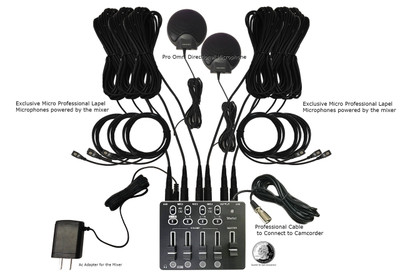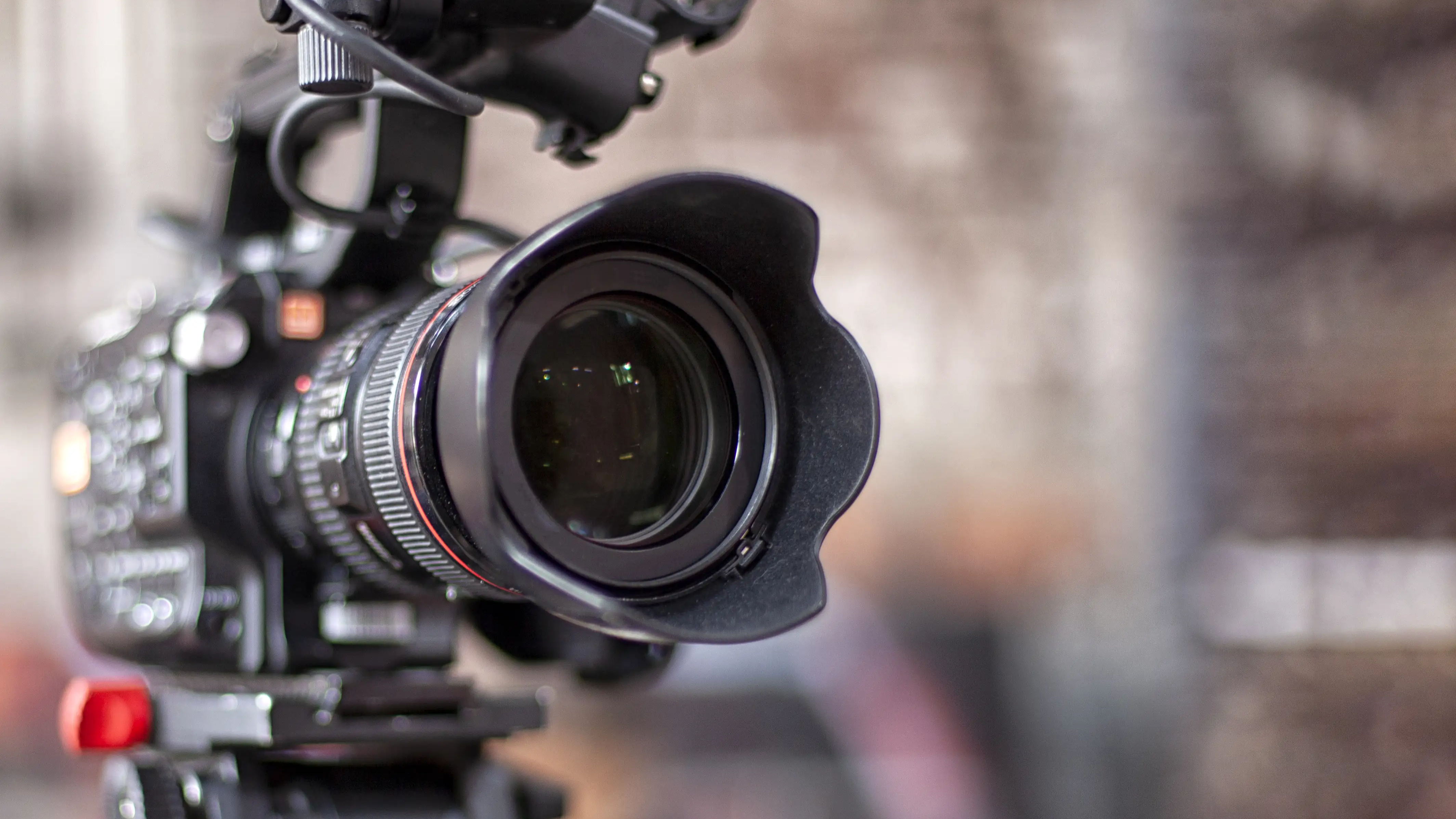Can legal video depositions replace live courtroom testimony?
The Relevance of Lawful Video Depositions in Modern Legal Services: What You Need to Know
Lawful video depositions have become crucial in today's lawful landscape. They offer a multidimensional view of witness testimonies that typical records just can not match. By catching both verbal and non-verbal interaction, these depositions boost the general understanding of a witness's reputation. Nevertheless, the efficiency of video depositions depends upon various factors, consisting of compliance with legal criteria and finest practices (legal video depositions). Discovering these elements discloses their true value in contemporary lawful services
What Are Legal Video Clip Depositions?
Legal video depositions act as a vital device in the litigation procedure. They involve tape-recording witness testaments in a video style, recording both spoken and non-verbal communication. This method enables attorneys to record the behavior, expressions, and responses of witnesses, providing a richer context for the testimony. Normally performed in a regulated setting, these depositions are led by lawyers that ask questions while a court press reporter records the dialogue. The resulting video clip can be critical for test prep work, as it enables lawyers to evaluate the credibility of witnesses and refine their approaches. In addition, lawful video depositions can be utilized in various legal contexts, varying from civil conflicts to criminal situations. The aesthetic and acoustic elements of video depositions enhance the presentation of proof, making it an important component in the modern legal landscape. Overall, they contribute significantly to the effectiveness and efficiency of legal proceedings.

Advantages of Video Clip Depositions Over Typical Approaches
Video clip depositions use various advantages contrasted to typical approaches of taking witness statements. One considerable benefit is the ability to capture both aesthetic and audio aspects, offering a more comprehensive record of the witness's statements. This twin layout boosts quality and enables lawyers to reference specific subtleties throughout trial preparation. In addition, video clip depositions help with remote participation, making it simpler for witnesses who might be not available for in-person appearances due to geographical restraints or health and wellness issues.Moreover, video depositions can speed up the total deposition process, reducing the moment and costs related to traveling and logistics. They also improve ease of access, as recorded depositions can be quickly shared among lawful teams and referenced any time. This ease adds to far better situation management and prep work. In general, video clip depositions represent a modern, reliable technique to gathering witness testaments, lining up with the progressing needs of the lawful profession.
The Function of Body Movement and Tone in Testimonies

In lawful video depositions, body movement and tone play important duties in conveying a witness's credibility and credibility. Nonverbal signs can offer understandings right into a witness's mood, influencing exactly how their testament is perceived. Recognizing the impact of these aspects is necessary for jurors and lawyers alike when evaluating the reliability of a testimony.
Nonverbal Communication Insights
While verbal communication is typically highlighted in lawful testaments, nonverbal hints such as body movement and tone play a vital role in conveying trustworthiness and emotion. Onlookers of depositions might keep in mind that a witness's stance, motions, and faces can substantially affect assumptions of dependability. Regular eye call might indicate confidence, while staying clear of stare might suggest dishonesty or pain. In a similar way, the intonation-- its quantity, speed, and pitch-- can pass on feelings of genuineness or unpredictability. Attorneys have to be attuned to these nonverbal signals, as they frequently give important context that matches spoken words. Recognizing these subtleties can boost the efficiency of depositions and influence the end result of legal process.
Emotional Tone Influence
The emotional tone shared throughout legal statements considerably impacts just how a witness is perceived. Body movement, vocal inflections, and faces play vital functions in shaping the narrative of a testament. A witness exhibiting self-confidence through constant eye contact and a tranquil tone can instill a feeling of reliability and interaction. Alternatively, indications of anxiousness, such as fidgeting or an unstable voice, might lead to uncertainty regarding their account. The subtleties of psychological expression can affect the interpretation of truths, making it crucial for legal specialists to recognize these hints. In video clip depositions, the acoustic and aesthetic components combine, highlighting the value of emotional tone in communicating genuineness and reliability within the lawful procedure.
Reliability and Dependability
A vital consider developing credibility and credibility throughout testimonies depends on the witness's body language and intonation. Viewers often rely on non-verbal cues-- such as eye contact, position, and gestures-- to examine a witness's genuineness. As an example, a witness that keeps eye call and presents open body language may be viewed as more trustworthy and straightforward than one that prevents eye get in touch with or appears closed off. Furthermore, tone of voice plays an important role; a steady, tranquil tone can enhance the integrity of the statement, while fluctuations in pitch or volume might increase doubts. Inevitably, the mix of body language and singing tone considerably affects exactly how a witness's statements are obtained and analyzed in a legal context.
Ideal Practices for Carrying Out Video Depositions
Performing video clip depositions requires mindful preparation and execution to assure a effective and clear discussion of testimony. It is vital to choose a silent, well-lit place to decrease diversions and secure ideal video clip high quality. The tools must be evaluated in advance, including electronic cameras, microphones, and illumination, to stay clear of technological issues during the deposition.Next, events involved have to evaluate the format and procedures ahead of time, seeing to it that everyone comprehends their duties. The deponent should be informed on the procedure, including exactly how look at this web-site to react clearly and why not check here concisely.Additionally, preserving a specialist behavior throughout the session is crucial. This includes abstaining from talking over each other and confirming that all concerns are routed suitably. Finally, it is important to record the deposition in a format that enables simple playback and testimonial, maintaining the honesty of the testimony for future use.
Lawful Factors To Consider and Compliance Issues
How do legal factors to consider and conformity concerns influence the effectiveness of video depositions? Legal professionals should navigate a complicated landscape of policies, making sure that video depositions abide by administrative regulations and criteria. Conformity with laws worrying personal privacy, authorization, and taping methods is necessary. Getting explicit permission from all events entailed is needed to prevent legal repercussions.Additionally, the admissibility of video clip proof in court can hinge on conformity with step-by-step requirements. Ensuring that the devices utilized meets technological requirements is additionally crucial, as low quality can threaten the deposition's reliability.Moreover, attorneys have to know any details state legislations that govern video clip depositions, as these can differ greatly. Failing to deal with these factors to consider can not only threaten the integrity of the deposition yet also influence the overall instance technique, inevitably impacting the customer's legal end results.
How Video Clip Depositions Impact Court Assumption
While video depositions can function as powerful devices in legal process, their influence on court perception is considerable. The acoustic and visual aspects of video recordings supply jurors with a more extensive understanding of witness demeanor, reputation, and emotional feedbacks. This multimedia approach can improve the jurors' capacity to assess the dependability of testament contrasted to conventional text-based transcripts.Moreover, video clip depositions permit jurors to observe body language, tone of voice, and face expressions, every one of which can impact their interpretation of the witness's statements. The existence of a witness on display can humanize them, cultivating empathy and connection, which may persuade jurors' point of views. Conversely, a witness who shows up unreliable or incredibly elusive on video clip might lead to negative assumptions that influence a jury's choice. Inevitably, the vibrant nature of video clip depositions plays a vital function in forming just how jurors analyze proof and reach their verdicts.
The Future of Video Depositions in Legal Practice
As developments in innovation continue to reshape the legal landscape, the future of video depositions is poised for significant evolution. Developments such as expert system, online reality, and enhanced video conferencing tools are expected to streamline the deposition procedure and boost access. Attorneys might use AI-driven analytics to assess witness trustworthiness and instance stamina much more effectively.Moreover, the integration of digital fact might allow courts to experience immersive simulations of depositions, giving deeper context and understanding. Additionally, the trend towards remote depositions is likely to continue, offering better versatility for attorneys and customers alike.As remote job ends up being increasingly stabilized, video clip depositions will likely visit their website become standard technique, decreasing costs and time restrictions connected with standard methods. On the whole, these technological advancements assure to enhance the performance, effectiveness, and access of video depositions in lawful practice, eventually transforming exactly how attorneys prepare for test.
Frequently Asked Concerns
Just How Much Do Legal Video Clip Depositions Generally Price?

Can Video Depositions Be Utilized in Any Kind Of Type of Situation?
Video clip depositions can be utilized in different kinds of cases, including civil, criminal, and family members law. Their versatility permits lawyers to existing witness testimonies efficiently, adjusting to the details needs of different lawful scenarios.
What Equipment Is Needed for a Video Clip Deposition?
To perform a video clip deposition, important devices consists of a high-quality video camera, microphone, illumination, and a reliable recording device. Furthermore, a computer with modifying software program might be necessary for post-production and formatting the last video.
For how long Does a Common Video Deposition Last?
A normal video clip deposition lasts in between 2 to 4 hours, depending upon the intricacy of the situation and the number of questions positioned. Prolonged sessions may happen, however breaks are normally integrated for individual comfort.

Are Video Depositions Admissible in Court?
Video clip depositions are usually permissible in court, offered they comply with lawful requirements and policies of proof. Their usage improves clearness and maintains witness testament, assisting in the judicial process during hearings and trials. Legal video depositions have become necessary in today's lawful landscape. Furthermore, lawful video clip depositions can be made use of in numerous lawful contexts, varying from civil disagreements to criminal instances. Furthermore, video clip depositions assist in remote involvement, making it simpler for witnesses who might be inaccessible for in-person appearances due to geographical constraints or wellness issues.Moreover, video clip depositions can speed up the overall deposition process, lowering the time and expenses connected with traveling and logistics. Making sure that the devices used fulfills technical standards is additionally essential, as inadequate high quality can threaten the deposition's reliability.Moreover, attorneys have to be aware of any type of particular state laws that regulate video depositions, as these can differ significantly. In addition, the pattern towards remote depositions is most likely to continue, supplying higher adaptability for clients and lawyers alike.As remote work ends up being increasingly normalized, video clip depositions will likely become standard method, reducing expenses and time restraints connected with typical methods.